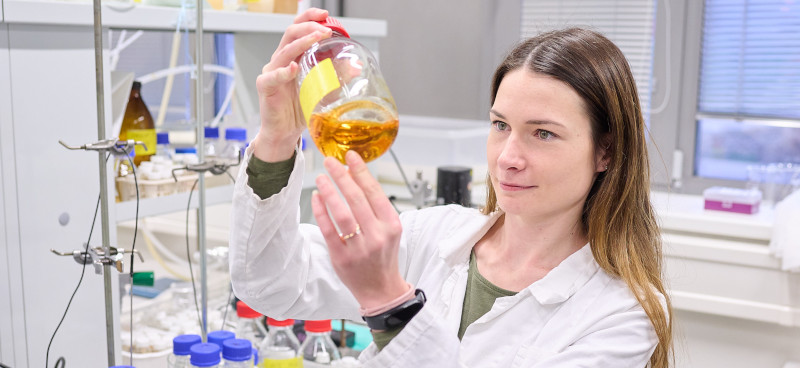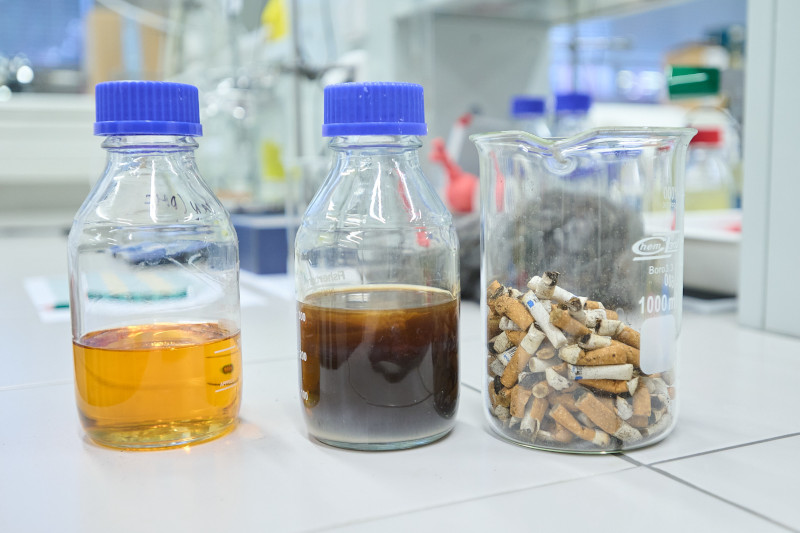
Nanotechnology Using Cigarette Butts Will Help Remove Hormones from Waste Water
20. January 2023Cosmetics, detergents, industrial production and hormonal contraceptives. All of them produce pollutants and hormone residues which get into the waste water. Their amount is constantly increasing, and, therefore, it is necessary to eliminate their presence. And that not only in drinking water, but also in natural water sources.
It has been proven that such hormones can be the cause of hormonal imbalances, metabolic, reproductive and psychological disorders, high blood pressure and many other diseases in humans. In aquatic organisms, they can for example result in visual impairment, chronic toxicity, reproductive changes that can lead to infertility and adverse physiological changes. Scientists from the Centre of Polymer Systems (CPS) of Tomas Bata University in Zlín are seeking a method that can be used in order to remove oestrogen hormones from water.
“Cellulose derivatives are widely used in many applications. We have found out that some of them have the ability to capture unwanted substances, including residual hormones, in water. Coincidentally, as regards the chemical composition, the same substance is used for the production of cigarette filters. It is reported that cigarette filters make up a significant part of the waste found in the seas and oceans, and, unfortunately, all of us encounters can see discarded cigarette butts on the streets every day. That is how the idea of exploring the use of this waste came to us,” says Prof. Vladimír Sedlařík, Director of the Centre of Polymer Systems.
Therefore, Zlín-based scientists came up with an idea of how to re-use these cigarette filters. “We are developing polymer nanofibers prepared from cellulose acetate, which is a polymer obtained by recycling of cigarette butts. These nanofibers have the ability to capture very small particles, including hormones, during water filtration,” says Muhammad Yasir, M.Sc, who also dealt with this issue in his doctoral thesis written under the supervision of Prof. Sedlařík. “Furthermore, the results obtained so far show that the sorption capabilities of recycled cellulose acetate from cigarettes are comparable to pure cellulose acetate,” adds Dr. Yasir.

In future, the project will focus on improving of the technological process of capturing of hormones in water. “One of the options is the use of the so-called photocatalysis for a treatment of sorbents, where the captured pollutants would be decomposed as the result of the effect of light,” explains Dušan Kimmer, CSc., a co-investigator of the project.
“During his studies, my colleague Muhammad Yasir published seven papers in prestigious scientific journals, and his results were presented at five international conferences, which is a great accomplishment. Moreover, after the production of the theoretical outputs, a project implemented in cooperation with an industrial partner followed, which is an ideal example of practical application of research results,” adds Prof. Vladimír Sedlařík.